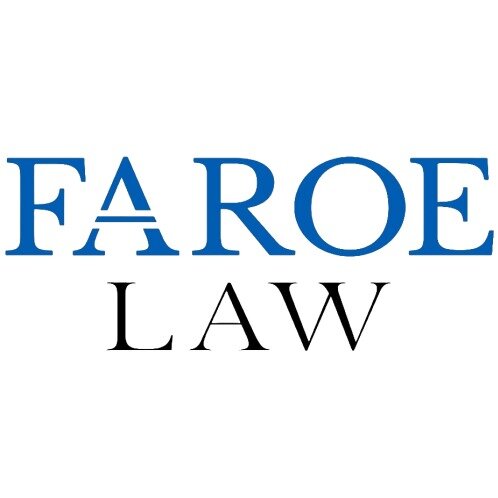Best Real Estate Lawyers in Faroe Islands
Share your needs with us, get contacted by law firms.
Free. Takes 2 min.
Free Guide to Hiring a Real Estate Lawyer
Or refine your search by selecting a city:
List of the best lawyers in Faroe Islands
About Real Estate Law in Faroe Islands
The Faroe Islands, an autonomous territory within the Kingdom of Denmark, have a unique legal framework that governs real estate transactions. The real estate market in the Faroe Islands is relatively small compared to other regions, characterized by limited available land and specific legal requirements. The laws are designed to protect both property owners and buyers, ensuring fair dealings and transactions. Generally, real estate law in the Faroe Islands covers property purchase, sale, leasing, and development, alongside zoning and land use regulations. It is essential for anyone involved in real estate transactions to be acquainted with these legalities to navigate the well-regulated market effectively.
Why You May Need a Lawyer
Engaging a lawyer for real estate transactions in the Faroe Islands can provide significant advantages and protections. Here are some common scenarios where legal expertise may be beneficial:
- Property Purchases: Legal assistance is crucial when reviewing contracts and ensuring all transactions comply with local laws.
- Sales and Transfers: Lawyers help in drafting and finalizing sale agreements, ensuring that titles are clear and all necessary documentation is complete.
- Leasing Agreements: Legal advice can clarify terms, conditions, and obligations for both landlords and tenants.
- Zoning and Land Use Issues: Understanding zoning laws and getting appropriate permissions for development requires expert guidance.
- Dispute Resolutions: Whether disputes arise from buyer-seller disagreements or landlord-tenant issues, a lawyer can help mediate and resolve conflicts.
Local Laws Overview
The legal landscape concerning real estate in the Faroe Islands includes various aspects worth noting:
- Property Ownership: There are regulations about who can own property, often requiring international buyers to obtain permission from local authorities.
- Registration of Property: All real estate must be formally registered with the Landskifterett (Land Registry) to ensure legal recognition.
- Transfer Taxes: Real estate transactions might incur local transfer taxes, which need to be calculated and complied with during property transfers.
- Zoning Regulations: Law mandates adhere to specific zoning requirements that impact how land can be used or developed.
- Environmental Laws: Given the geographical and environmental considerations, specific environmental regulations might apply to certain types of properties.
Frequently Asked Questions
What is the process for buying a property in the Faroe Islands?
The process involves identifying a property, negotiating purchase terms, drafting a purchase agreement, obtaining necessary approvals (especially for non-local buyers), and registering the transaction with the Land Registry.
Do I need specific permission to buy property in the Faroe Islands?
International buyers may require special permission to purchase property, which involves applications to local government authorities.
How are property transactions registered?
All property transactions must be registered with the Landskifterett to be legally valid and recognized.
What are the common taxes associated with property transactions?
Property transactions typically involve paying transfer taxes, which are calculated based on the property's value.
Can foreigners lease property in the Faroe Islands?
Yes, foreigners can lease property, but it’s advisable to ensure that lease agreements conform to local laws and regulations.
What should I consider before leasing out my property?
Ensure the lease agreement is comprehensive and clarifies all terms, conditions, and responsibilities, protecting both landlord and tenant interests.
What are the common zoning restrictions I might face?
Zoning laws will depend on the property’s location and intended use, and might include restrictions on building heights, types of permissible structures, or environmental protections.
How can I resolve a real estate dispute?
Disputes can often be resolved through mediation or arbitration. Legal advice is recommended to navigate these processes effectively.
Are there environmental considerations in property transactions?
Yes, certain properties may be subject to environmental regulations, particularly if they are in protected areas or near natural resources.
How can a lawyer assist in real estate transactions?
A lawyer can provide guidance on legal compliance, contract review, title clearance, and dispute resolution, ensuring a smoother transaction process.
Additional Resources
For further guidance on real estate matters in the Faroe Islands, consider utilizing the following resources:
- Landskifterett: The Land Registration Office is critical for formal property registration and legal recognition.
- Local Legal Firms: They can provide specialized knowledge about real estate regulations and transactions.
- Municipal Offices: Provide information on zoning and local property regulations.
- Environmental Agencies: Offer insights concerning environmental laws and protections related to real estate.
Next Steps
If you require legal assistance in real estate matters in the Faroe Islands, here are some steps you can take:
- Consult with a licensed real estate lawyer familiar with Faroese laws.
- Gather all relevant documentation and information concerning your property or transaction.
- Contact local authorities or regulatory bodies to understand specific legal requirements.
- Consider joining local forums or groups to connect with others in the real estate market.
- Schedule a preliminary meeting with legal counsel to assess your needs and possible legal strategies.
Lawzana helps you find the best lawyers and law firms in Faroe Islands through a curated and pre-screened list of qualified legal professionals. Our platform offers rankings and detailed profiles of attorneys and law firms, allowing you to compare based on practice areas, including Real Estate, experience, and client feedback.
Each profile includes a description of the firm's areas of practice, client reviews, team members and partners, year of establishment, spoken languages, office locations, contact information, social media presence, and any published articles or resources. Most firms on our platform speak English and are experienced in both local and international legal matters.
Get a quote from top-rated law firms in Faroe Islands — quickly, securely, and without unnecessary hassle.
Disclaimer:
The information provided on this page is for general informational purposes only and does not constitute legal advice. While we strive to ensure the accuracy and relevance of the content, legal information may change over time, and interpretations of the law can vary. You should always consult with a qualified legal professional for advice specific to your situation.
We disclaim all liability for actions taken or not taken based on the content of this page. If you believe any information is incorrect or outdated, please contact us, and we will review and update it where appropriate.
Browse real estate law firms by service in Faroe Islands
Faroe Islands Attorneys in related practice areas.
Browse real estate law firms by city in Faroe Islands
Refine your search by selecting a city.










